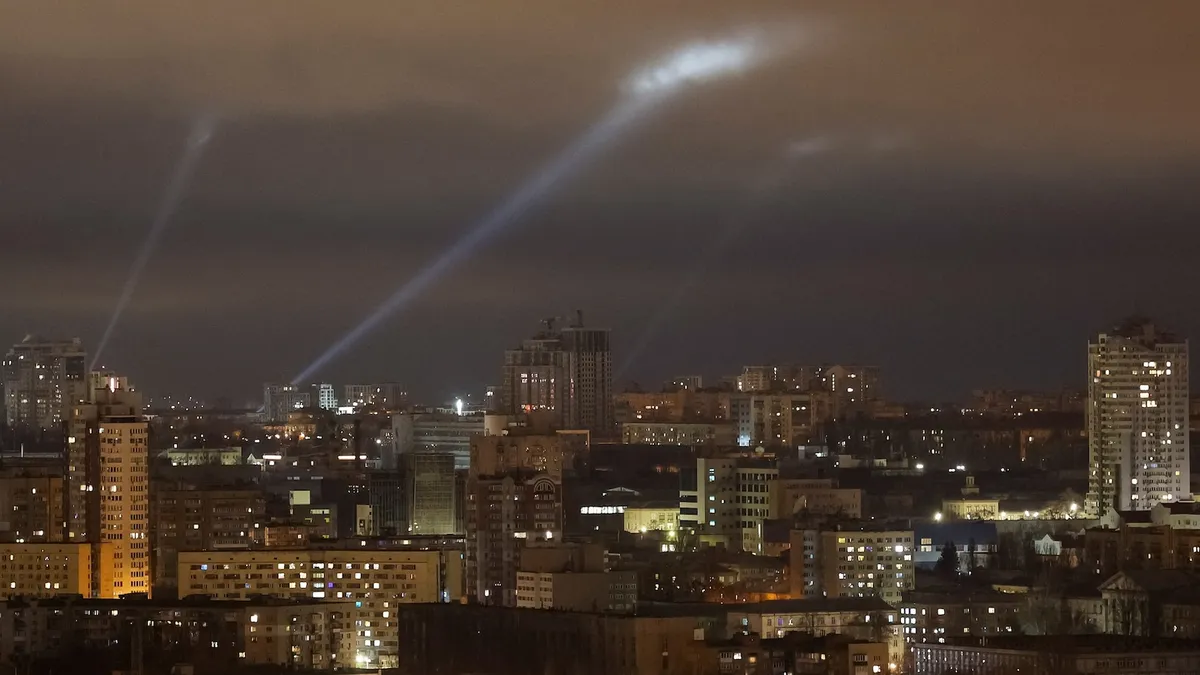
In a recent statement, President Volodymyr Zelenskyy emphasized that the overnight missile and drone attacks launched by Russia starkly contradict Moscow's claims of supporting a ceasefire in Ukraine. Ukrainian authorities reported multiple airstrikes across several regions, including a disturbing drone assault on a hospital located in the northeastern city of Sumy. This barrage occurred just hours after a conversation between Presidents Donald Trump and Vladimir Putin, where they discussed halting attacks on energy infrastructure as part of the White House's ongoing peace efforts.
Reflecting on the attacks, Zelenskyy took to Telegram to express his concerns. He stated, "Now in many regions, you can literally hear what Russia really needs," citing the presence of around 40 Shahed drones in Ukrainian airspace. "Our air defense is working," he noted, although he sadly acknowledged that some strikes had successfully hit civilian infrastructure. This pattern of night attacks, according to Zelenskyy, is damaging Ukraine's energy resources and disrupting the normal life of its citizens.
According to the Ukrainian Air Force, a total of six missiles and 145 drones were launched into Ukraine overnight. The air force successfully intercepted 72 of these drones, while another 56 drones were lost during flight without causing any significant damage. The regions affected by the attacks included Sumy, Odesa, Poltava, Dnipropetrovsk, Kyiv, and Chernihiv.
President Zelenskyy condemned the lack of a genuine ceasefire proposal from Putin, stating, "It would be right for the world to reject any attempts by Putin to drag out the war in response." He urged for continued sanctions against Russia, increased aid to Ukraine, and collaborative efforts to secure guarantees for freedom and peace. Zelenskyy asserted that only a real cessation of attacks on civilian infrastructure by Russia could pave the way for lasting peace.
The Kremlin reported that the conversation between Trump and Putin was "a detailed and frank exchange of views." However, Putin did not agree to the proposed 30-day ceasefire by the U.S. and Ukraine. Instead, the Russian leader portrayed any pause in hostilities as advantageous for Ukraine’s armed forces. Despite this, both parties did agree to ceasefire measures concerning energy infrastructure attacks, which the Kremlin stated were immediately communicated to Russian troops.
Hours post the discussions, Russian authorities reported a drone attack on an oil depot in the southern region of Krasnodar Krai, specifically in the Kavkazsky district. Falling debris from the attack triggered a fire at the oil depot, although local officials reported no casualties. Approximately 30 workers were evacuated as operations were suspended. The fire spread over an area exceeding 18,000 square feet, as confirmed by the region's Operational Headquarters on Telegram.
The Russian Defense Ministry claimed that its forces shot down 57 Ukrainian drones overnight. Additionally, the Russian federal air transport agency, Rosaviatsia, announced a temporary suspension of operations at airports in Kazan, Nizhny Novgorod, and Nizhnekamsk, although the reasons for these disruptions were not specified. Such interruptions are common during drone attacks.
Following the call between Trump and Putin, the White House stated that the two leaders concurred on initiating the path to peace through an energy and infrastructure ceasefire, alongside technical negotiations for a maritime ceasefire in the Black Sea. These discussions are set to begin immediately in the Middle East. Trump later described the conversation as "very good and productive," emphasizing the need for an immediate ceasefire on all energy and infrastructure, while expressing a commitment to work towards a complete cessation of hostilities and ultimately ending the ongoing conflict between Russia and Ukraine.
In summary, the ongoing situation in Ukraine highlights the complexities of the conflict, as President Zelenskyy continues to advocate for international support against Russian aggression while navigating uncertain peace negotiations.